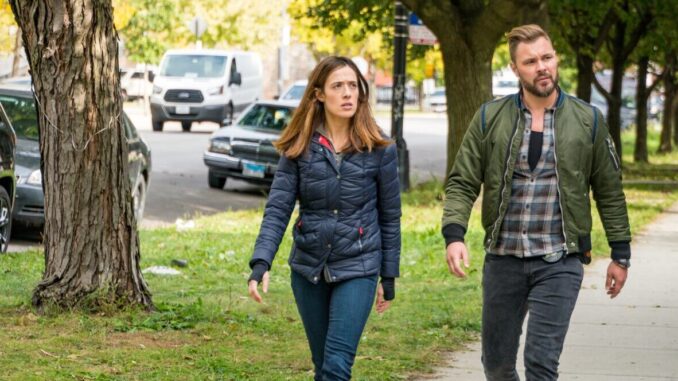
Since its explosive debut in 2014, Chicago P.D. has always revolved around the enigmatic and morally complicated figure of Sergeant Hank Voight. For twelve seasons, Jason Beghe’s gritty, gravel-voiced portrayal of Voight has kept viewers simultaneously enthralled and conflicted. He’s been a hero, an antihero, and at times a straight-up villain. From bending the rules to protect the city, to crossing ethical lines in pursuit of justice, Voight’s actions have stirred debate among fans and critics alike. Now, as Season 13 looms on the horizon, signs point to the show finally delivering on a character arc that has been subtly—and sometimes not so subtly—building since the very first episode: Voight’s ultimate reckoning.
It’s no exaggeration to say that Hank Voight is the backbone of Chicago P.D.. The character’s legacy goes back even further than the series itself, debuting in Chicago Fire as a corrupt cop whose methods were, at best, controversial. When he crossed over into Chicago P.D., showrunners had the bold task of making audiences care about someone whose introduction was that of a would-be villain. And yet, they succeeded. Over the years, Voight was shown to be deeply loyal to his team, emotionally scarred by personal tragedy, and driven by a complex mix of justice, vengeance, and paternal instinct.
But that complexity has always carried a price. Whether it was the cover-up of Justin’s death, his endless web of backdoor deals, or the brutal interrogations that made even his own team uneasy, Voight’s actions have always raised the same question: how long can he keep walking this tightrope before everything collapses? Season after season, the show has flirted with this fall-from-grace narrative, teasing consequences but always pulling back just enough to keep him standing. Season 13, however, could be different.
The groundwork has been laid for a major shift in Voight’s story. In recent seasons, the landscape around him has changed. New detectives have joined the Intelligence Unit with fresher, more modern perspectives on law enforcement. Internal Affairs is watching more closely. His once-loyal proteges, like Jay Halstead and Hailey Upton, have begun questioning his judgment in more visible and painful ways. And Voight himself has started to show cracks—not just as a leader, but as a man who’s beginning to wonder whether the ends still justify the means.

The series has never been shy about exploring morally gray territory, but Voight’s past is catching up to him, both narratively and emotionally. His loneliness has been palpable. With many of his closest allies gone or distanced—Olinsky dead, Halstead in Bolivia, and Lindsay long since disappeared—Voight is increasingly isolated. He’s lost his family, both literal and metaphorical, and with each passing season, the cost of his decisions becomes harder to ignore. It feels like the show is pushing him toward a climax: a moment where he must either change, fall, or finally answer for the decade of choices that have defined him.
Season 13 is a perfect stage for this evolution. The show’s writers have more than enough story threads to pull together a high-stakes, emotionally rich Voight arc that could serve as both a reckoning and a redemption story. Imagine Voight being investigated not just by IA, but by someone from his past—a former ally or enemy who knows his secrets too well. Or picture a case that mirrors one of his early, most questionable decisions, forcing him to relive the consequences through someone else’s eyes. There’s even the potential for the return of characters who were shaped—or scarred—by his leadership, coming back to challenge his authority and legacy.
At the heart of it all is Jason Beghe’s performance, which continues to be one of the most compelling on network television. Voight is a man of few words, but Beghe brings so much pain, wisdom, and weight to every moment that fans can read the story in his silence. A full-circle arc would give Beghe material worthy of awards, and more importantly, give Voight a final act that honors the complicated man fans have followed for over a decade.
What makes this potential arc even more intriguing is how it mirrors the evolution of the show itself. Chicago P.D. began in a post-Breaking Bad era of television, when antiheroes dominated screens. But the world—and the TV landscape—has changed. Today, viewers demand accountability, depth, and realism. A 2025 audience doesn’t just want Voight to be a “tough cop who gets things done.” They want to see what happens when a man like that is forced to confront what he’s become. They want to know if he’s still capable of growth—or if his own rulebook will finally bring about his downfall.
There’s also an opportunity here to redefine the Intelligence Unit going forward. If Voight is forced to step down, step back, or even stand trial, it opens the door for new leadership, new conflicts, and new storytelling possibilities. Could Upton rise to take command, balancing what she learned from Voight with her own sense of justice? Could Ruzek or Atwater step into a moral vacuum and chart a new path for the team? These questions don’t weaken the show—they strengthen it, injecting fresh energy while paying tribute to the foundation that Voight helped build.
